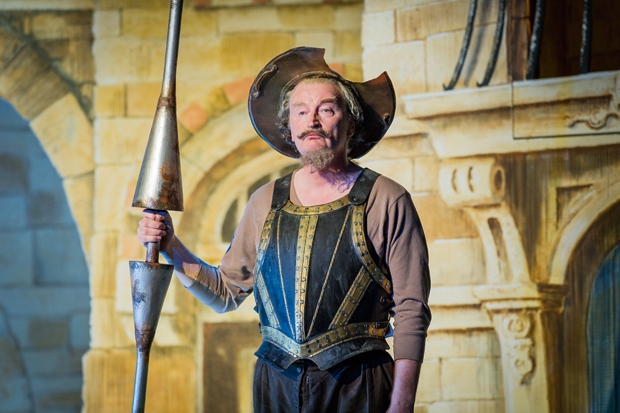To suggest that the ageing Jules Massenet identified himself with the title character of his Don Quichotte is nothing new — and late works such as this by definition encourage biographical interpretations. One of the main liberties of the opera, premièred in 1910 and very loosely based (via a contemporary verse play) on Cervantes, was to bring the character of Dulcinea (here ‘La Belle Dulcinée’) out of the realm of the imagination and to embody her as a distinctly flesh-and-blood mezzo-soprano. That the first singer to perform Dulcinée, Lucy Arbell, was the object of Massenet’s infatuation only emphasises the biographical parallels, all of which give extra layers to a gently wise and touchingly melancholy work.
What might have been better left hinted at, however, Charles Edwards’s new production at Grange Park Opera heavy-handedly emphasises, as a sentence preceding the otherwise unaltered programme synopsis seems to warn. ‘An elderly composer prepares to present a public showing of his latest opera to his friends in his salon…’ it reads ominously.
The set (also by Edwards) consists of a stage within the stage; a piano sits in front of it, at which our ‘composer’ slumps even before the opera starts.

Get Britain's best politics newsletters
Register to get The Spectator's insight and opinion straight to your inbox. You can then read two free articles each week.
Already a subscriber? Log in







Comments
Join the debate for just £1 a month
Be part of the conversation with other Spectator readers by getting your first three months for £3.
UNLOCK ACCESS Just £1 a monthAlready a subscriber? Log in